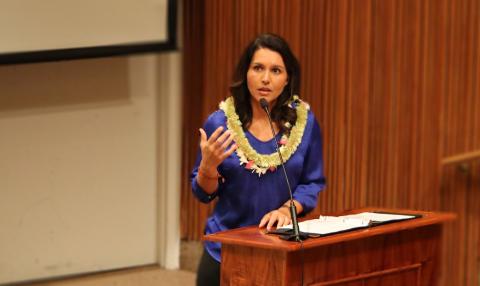Last week's memo released by Attorney General Jeff Sessions may place him in direct conflict with public opinion as well as a bipartisan coalition of lawmakers.
The memo directs federal prosecutors to seek the harshest sentences possible when prosecuting federal cases and also signals a formal withdrawal from a signature aspect of Obama era Attorney General Eric Holder's "Smart on Crime" initiative, which "sought to target the most serious crimes and reduce the number of defendants charged with non-violent drug offenses that would otherwise trigger mandatory minimum sentences." This reversal of Obama era policy could have significant impact on those charged with the possession of marijuana.
This comes at a time when public support for legalizing marijuana is up to 60%, according to Gallup. Legalization enjoys the highest favorability among Democrats and Independents, however, Republicans' support has doubled from more than a decade ago. Additionally, a 2015 Public Policy Polling survey, found that a majority of Republicans favor states' rights to legislate their own marijuana use without federal interference.
In February, Rep. Thomas Garrett (R-Va.) introduced H.R. 1227, ending Federal Marijuana Prohibition Act of 2017, along with Reps Tulsi Gabbard (D-Hawaii), Scott Taylor (R-Va.), and Jared Polis (D-Colo.).
The bipartisan bill would allow states to fully dictate medical and recreational marijuana policy without risk of intervention by the federal government. The legislation has gained popularity, and now boasts 11 cosponsors, including both Republicans and Democrats. It has been referred to several committees so far, including the Subcommittee on Crime, Terrorism, Homeland Security, and Investigations.
Friday, Gabbard took to Twitter to express her discontent with Sessions' apparent ramping up of the War on Drugs. She calls for "#criminaljusticereform now" and claims that "AG Sessions' discriminatory memo on sentencing takes things in the wrong direction." Gabbard then called for Congress to pass H.R. 1227 as a step toward ending what many have come to view as a flawed War on Drugs.
https://twitter.com/TulsiGabbard/status/863184419170861056
https://twitter.com/TulsiGabbard/status/863184617540534272
Others have been critical of Sessions' memo, including former Attorney General Holder, who stated:
"The policy announced today is not tough on crime. It is dumb on crime. It is an ideologically motivated, cookie-cutter approach that has only been proven to generate unfairly long sentences that are often applied indiscriminately and do little to achieve long-term public safety."
Additionally, Rand Paul (R-KY), who has been a surprising ally of Gabbard, published an op-ed Monday on CNN decrying the move as:
"...a reversal of a policy that was working, will accentuate the injustice in our criminal justice system. We should be treating our nation's drug epidemic for what it is -- a public health crisis, not an excuse to send people to prison and turn a mistake into a tragedy."
Lawmakers across the political spectrum are coming out against the War on Drugs, which has come to the forefront of progressive discourse recently. This can in part be attributed to increased awareness on the issue, following the release of the award winning Netflix documentary, 13th, which focuses on the propensity of the criminal justice system to target minorities and the poor, which in turn, contributes to prison overcrowding with low level drug offenders.
Rep. Gabbard's ability to work across the aisle as well as to buck traditional establishment narratives, has allowed her to gain respect from progressives and Trump supporters alike. Are they listening to her calls now?
Image Source: Flickr.com / Tulsi Gabbard
